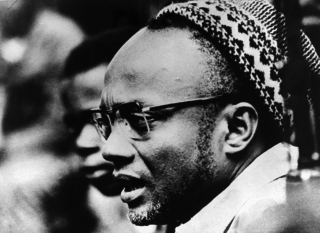A Quote by Richard M. Weaver
There are some despotic governments so filled with a feeling of insecurity that they regard the free life of culture as a threat to their existence. ... On the other extreme is the kind of popular government which is so distrustful of all forms of distinction that it sees even in the cultivated individual a menace to its existence. Such states are likely to maintain a pressure which discourages cultural endeavor, although the pressure may be exerted through social channels.
Related Quotes
Governments which have a regard to the common interest are constituted in accordance with strict principles of justice, and are therefore true forms; but those which regard only the interest of the rulers are all defective and perverted forms, for they are despotic, whereas a state is a community of freemen.
The cause of Sense, is the External Body, or Object, which presseth the organ proper to each Sense, either immediately, as in theTaste and Touch; or mediately, as in Seeing, Hearing, and Smelling: which pressure, by the mediation of Nerves, and other strings, and membranes of the body, continued inwards to the Brain, and Heart, causeth there a resistance, or counter- pressure, or endeavor of the heart, to deliver it self: which endeavor because Outward, seemeth to be some matter without.
Control of thought is more important for governments that are free and popular than for despotic and military states. The logic is straightforward: a despotic state can control its domestic enemies by force, but as the state loses this weapon, other devices are required to prevent the ignorant masses from interfering with public affairs, which are none of their business… the public are to be observers, not participants, consumers of ideology as well as products.
Besides the advantage of being armed, which the Americans possess over the people of almost every other nation, the existence of subordinate governments, to which the people are attached, and by which the militia officers are appointed, forms a barrier against the enterprises of ambition, more insurmountable than any which a simple government of any form can admit of.
Societies exist under three forms sufficiently distinguishable. 1. Without government, as among our Indians. 2. Under governments wherein the will of every one has a just influence, as is the case in England in a slight degree, and in our states, in a great one. 3. Under governments of force: as is the case in all other monarchies and in most of the other republics. To have an idea of the curse of existence under these last, they must be seen. It is a government of wolves over sheep.
Though it is disguised by the illusion that a bureaucracy accountable to a majority of voters, and susceptible to the pressure of organized minorities, is not exercising compulsion, it is evident that the more varied and comprehensive the regulation becomes, the more the state becomes a despotic power as against the individual. For the fragment of control over the government which he exercises through his vote is in no effective sense proportionate to the authority exercised over him by the government.
To take, for example, my own death: what I consider most likely to be true is that death will be the complete and utter end of my existence, with no successor existence of any kind that can be related to me as I now am. And if that is not the case, the next most likely scenario, it seems to me, is something along the lines indicated by Schopenhauer. But neither of these is what I most want. What I want to be true is that I have an individual, innermost self, a soul, which is the real me and which survives my death. That too could be true. But alas, I do not believe it.
Anarchism asserts the possibility of an organization without discipline, fear, or punishment, and without the pressure of poverty: a new social organism which will make an end to the terrible struggle for the means of existence, --the savage struggle which undermines the finest qualities in man, and ever widens the social abyss. In short, Anarchism strives towards a social organization which will establish well-being for all.
In India the government is very chaotic and poorly run. They are forced into action by public pressure. When it's a larger event, there's a lot more pressure - to do something, to investigate, to give some kind of compensation to the victims. With the smaller attacks, the pain is concentrated on those affected, because they've not just been forgotten by everyone else, which is normal, they've also been forgotten by the government, which lets the cases drag on for years in the courts.
Every new born being indeed comes fresh and blithe into the new existence, and enjoys it as a free gift: but there is, and can be, nothing freely given. It's fresh existence is paid for by the old age and death of a worn out existence which has perished, but which contained the indestructible seed out of which the new existence has arisen: they are one being.
To be under pressure is inescapable. Pressure takes place through all the world; war, siege, the worries of state. We all know men who grumble under these pressures and complain. They are cowards. They lack splendour. But there is another sort of man who is under the same pressure but does not complain, for it is the friction which polishes him. It is the pressure which refines and makes him noble
In some central and important cases, ... the existence of specific power relations in the society will produce an appearance of a particular kind. Certain features of the society that are merely local and contingent, and maintained in existence only by the continual exercise of power, will come to seem as if they were universal, necessary, invariant, or natural features of all forms of human social life, or as if they arose spontaneously and uncoercedly by free human action.
A people who free themselves from foreign domination will be free culturally only if,
without complexes and without underestimating the importance of positive accretions from
oppressor and other cultures, they return to the upward paths of their own culture, which is
nourished by the living reality of its environment, and which negates both harmful influences
and any kind of subjection to foreign culture. Thus, it may be seen that if imperialist
domination has the vital need to practice cultural oppression, national liberation is necessarily
an act of culture







































